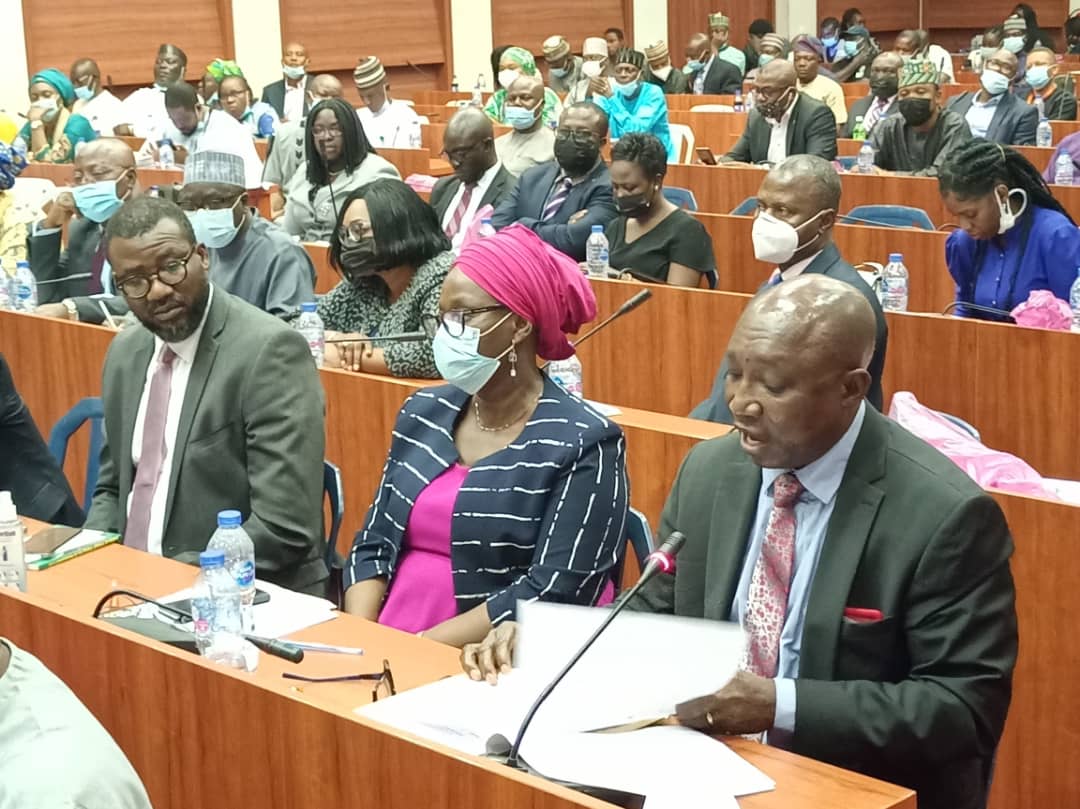The Chairman, Independent Corrupt Practices and Other Related Offences Commission (ICPC), Professor Bolaji Owasanoye, SAN, has declared that opaque appropriation for constituency projects needed to be regulated by the proposed Constituency Projects (Budgeting Provision) Bill 2019.
Professor Owasanoye, who was represented by his Chief of Staff, Dr. Esa Onoja, made the declaration during a one-day public hearing on Fiscal Responsibility Commission (Establishment) Bill 2020, Constituency Projects (Budgeting Provision) Bill, 2019 and Nigeria Sovereign Investment Authority (Establishment) Act CAP N166 LFN 2004 (Amendment) Bill 2020, in Abuja.
According to the Chairman, “Constituency Projects are highly beneficial to the people but opaque appropriation for capacity building and empowerment, which enables abuse and diversion of public revenue, needs to be regulated by the proposed Act.”
“The Bill should provide that projects must be completed to ensure that projects are not abandoned after the tenure of a particular legislation,” he recommended further.
In support of the proposed legislation, the ICPC boss stated that the Commission, guided by its work on tracking of constituency projects over the last two years, had submitted a 5-paged memorandum.
On clauses 3 to 5 of the Bill, which deal with the procedure for infusion of constituency projects in the budget, the Commission proposed a Needs Analysis to guide the Appropriations Committee in the consideration and allocation of projects.
Professor Owasanoye who frowned at vague description of projects, saying that it was the bane of constituency projects, called for adequate description to avoid switching and changing of the scope of the projects by MDAs, aides or sponsors.
While declaring the event opened, the President of the Senate, Senator Ahmad Lawan, who was represented by the Chief Whip, Senator Orji Uzo Kalu, said that the value adding potentials of constituency projects should not be undermined because of their ability to foster growth.
The Senate President explained that the public hearing was a platform for all critical stakeholders to cross-fertilize ideas that could trigger growth from policy conception to execution.
Speaking at the public hearing, the sponsor of the Bill, Senator Stella Oduah, stated that the Bill when passed into law, would have communities have access to the national budget, and they would be adequately represented when it comes to infrastructural development.
She expressed that “Constituency Projects if situated in our various communities would give us a bottom-up growth in our economic aspiration.”
Senator Oduah also spoke against the misconception that constituency projects were National Assembly projects, saying that constituency projects were projects for the communities, initiated by the communities.
Senator Oduah therefore called for the total support of all stakeholders so that the bill can be passed into law.

